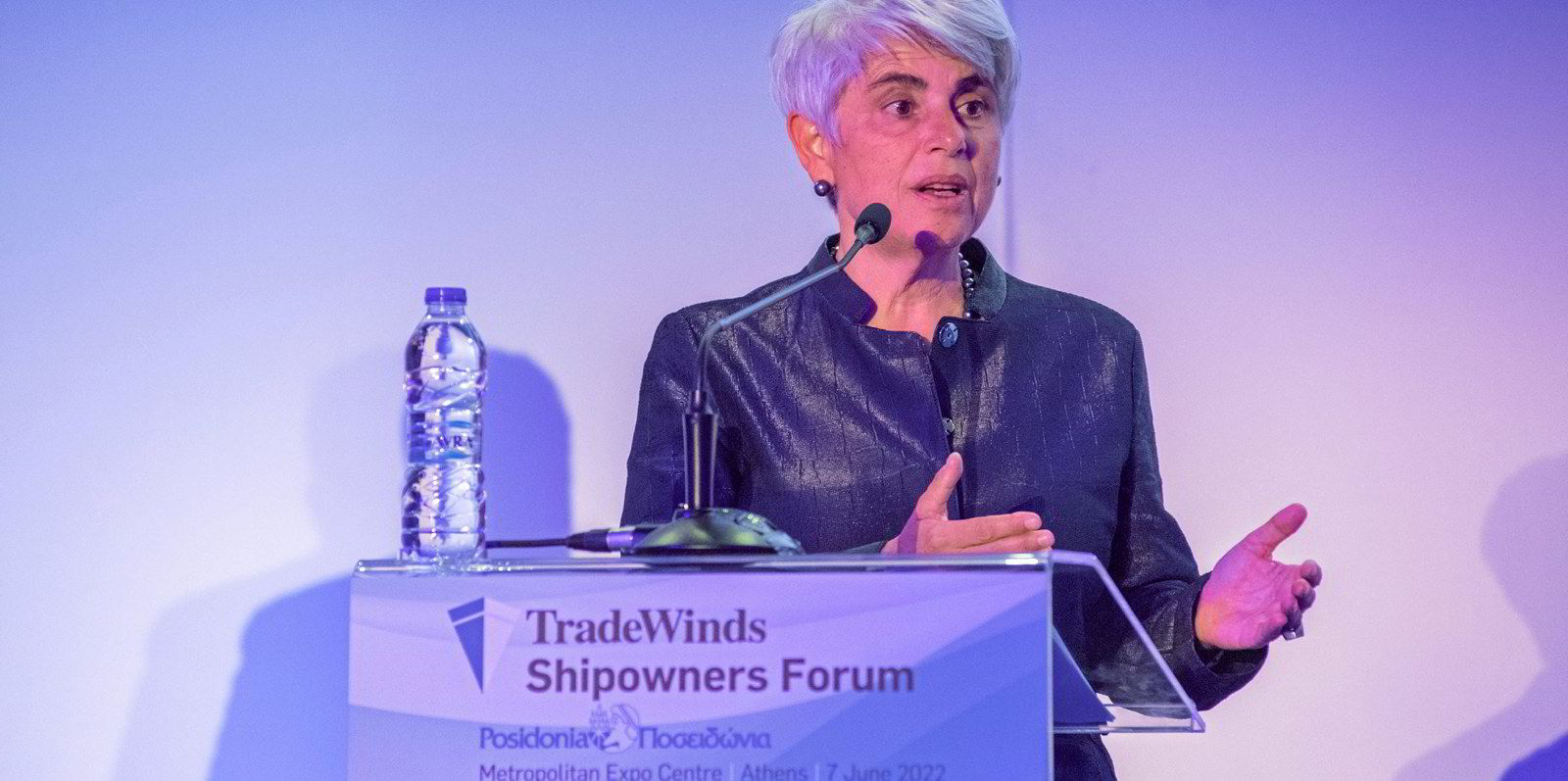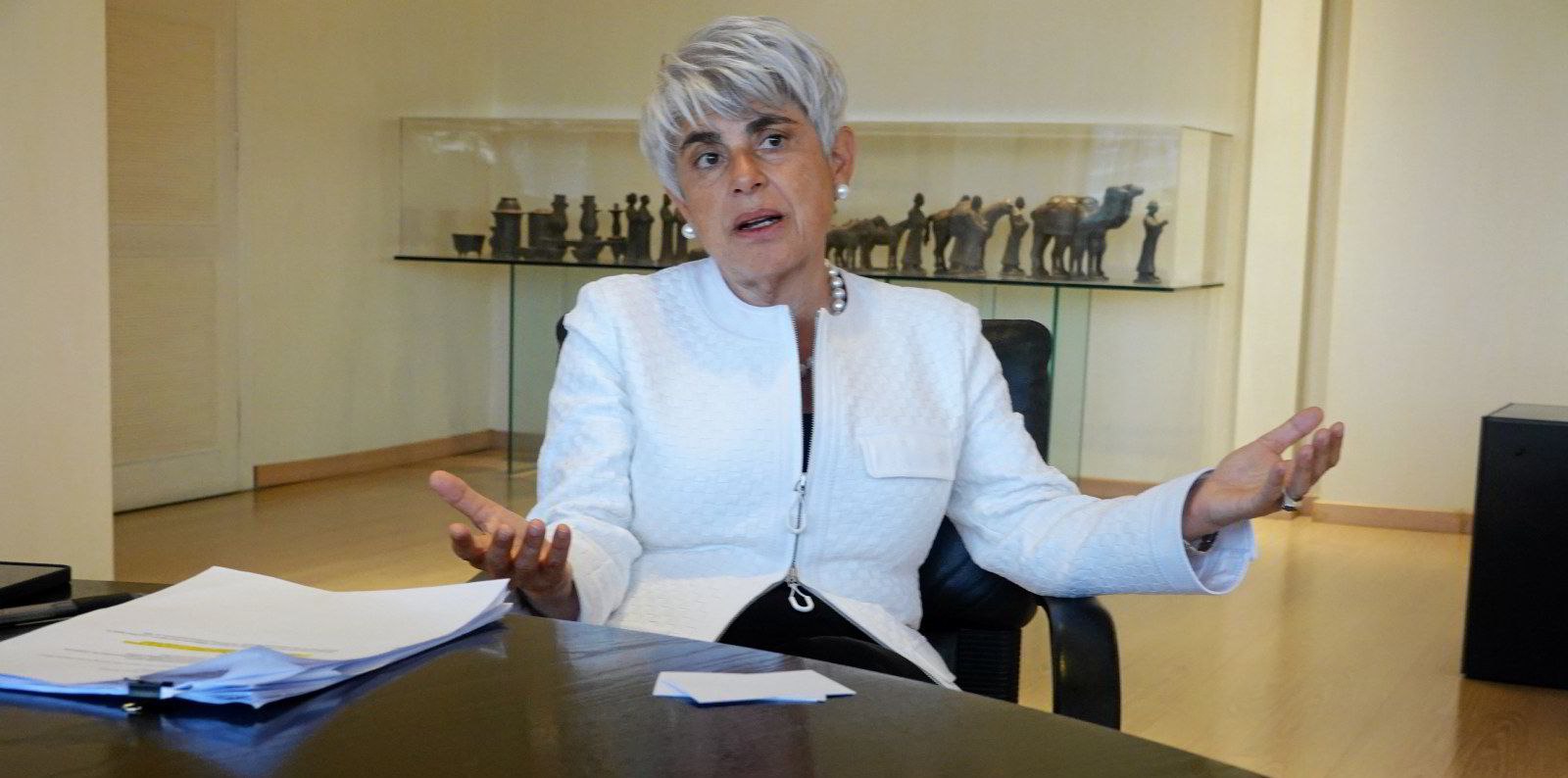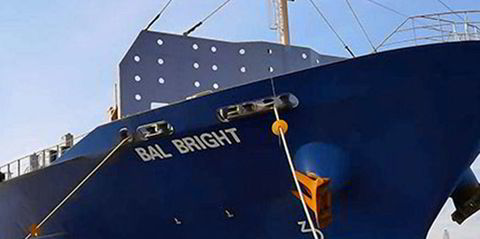The next shoe to drop in the dramatic revamp of Angeliki Frangou’s Navios Group of companies will be a $100m authorisation for the repurchase of shares, sources familiar with the company said on Wednesday.
The buyback plan, expected to be announced with Navios Partners’ earnings on Thursday, may give comfort to investors who have complained about the shipowner’s unwillingness to increase its shareholder distribution or dividend in proportion to its profits.
News of the initiative surfaced as sources close to the group extolled the virtues of Navios Partners’ $835m purchase of the 36 bulkers in the fleet of parent Navios Holdings, which was revealed on Wednesday after the close of trading in New York.
The all-cash deal vaults Navios Partners, already a gargantuan diversified shipowner, into the second-largest US-listed shipping company and third-largest bulker player, with 188 ships in addition to 22 newbuildings.
It also comes in advance of an $80m bond maturity that would have come due for Navios Holdings next month, but now will be repaid from the deal proceeds.
With summer often the time for movie sequels, one source close to the group seemed to have that in mind in describing the Navios Holdings buy, which is the latest of Frangou's gathering of what had once been a complex web of related companies into a single fleet under one banner.
"With the earlier deals we had Monster One – now this is Monster Two, one of the largest publicly traded shipping companies in existence," he said.
Frangou is upping the ante in her argument that pure play public shipping companies of the type that existed before her intra-group consolidation are so 2000s – an outmoded creation of investment bankers who have seen many operators with a single-segment focus restructure or go bust.
“Gone are the days of these pure plays where you get sugar highs for six months and then 10 years of nuclear winter when the market turns,” one source said.
Whether investors have exactly embraced Navios Partners’ meld of bulkers, container ships and tankers into one huge fleet is a matter of debate: a recent coverage note from investment bank Jefferies shows that the shipowner is trading at only 19% of net asset value, by far the lowest of the 24 companies under coverage.
The sources maintained, however, that NAV is up about 4% on the year and the company’s shares are trading about flat as opposed to a 20% drop in the S&P 500. And this is with container ships representing about 50% of fleet NAV, and some boxship peers down 20% or more on the year.

“That’s the market not appreciating the value of the hard assets, but that’s where the buyback programme can help close the gap,” one source said.
Asked why Navios Partners is not responding to calls – particularly from disgruntled professional investor Ned Sherwood – to ramp up the dividend, the sources defended buybacks as a superior alternative.
“They’re economically equivalent, whether you sell stock and pay capital gains or get dividends and pay a 15% tax. Buybacks are much better to the remaining shareholders. They’re accretive and it’s not a permanent commitment,” one source said.





